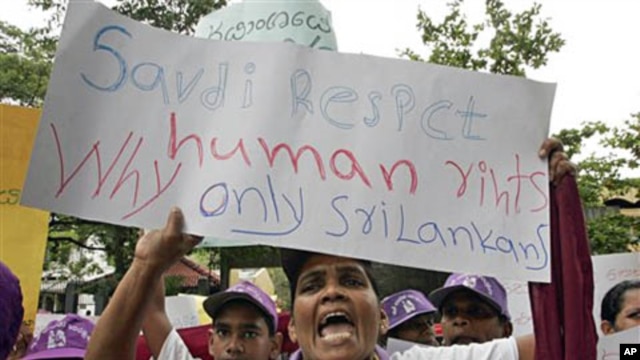
In a time not that long ago, the mere mention of Arabian Peninsula used to evoke images of a scarcity of basic needs never mind wants. The primary food was known as the ‘two blacks’ (الاسودىن): the dates and the black seawater, and this deprivation led Arabs to flee the Middle East to Hyderabad, India, North Africa, Indonesia, Malaysia, Brunei and East Africa.
In the period leading up to World War II, the League of Nations, the UN predecessor organization, held an emergency meeting about dealing with the crisis of seven out of ten Arabian children dying before adulthood and came up with the solution of sending an American engineer to the region to search for water. What he found instead was oil. That chance find was the genesis of Arabia’s economic revival.
 With the arrival of major Western oil firms to explore for oil in the Arabian arid landscape, the fortunes of one of the most uninhabitable places on earth had drastically changed and the bitter realities of the desert seemed to disappear. But today‘s Arabia, the Arabia built solely with oil money, is a hotbed of human rights violations upon both foreigners and locals alike: horrific honor killings and gender based violence like nailing on breasts or buttocks of housemaids are now common events and too often going unpunished.
With the arrival of major Western oil firms to explore for oil in the Arabian arid landscape, the fortunes of one of the most uninhabitable places on earth had drastically changed and the bitter realities of the desert seemed to disappear. But today‘s Arabia, the Arabia built solely with oil money, is a hotbed of human rights violations upon both foreigners and locals alike: horrific honor killings and gender based violence like nailing on breasts or buttocks of housemaids are now common events and too often going unpunished.
Think Foreign Workers in Arab World
Today, you hear these words: كفالة, (a kind of bonded labor) and هارب عن عمل (a deserter from his employer). You can be forgiven for thinking these are Arabic words for a system equal to I-94 Card, Aliens Permit or the Green Card for foreigners in the US but that is not the case. These vague words and statements are tools of systematic bondage of foreign labor of unprecedented scale. For no apparent reason, Arabia seems to have stopped recognizing human dignity or trying to behave like the rest of the world. Various sects of old-fashioned warriors ranging from Islamic Brotherhood to Salafis are fighting to impose their versions of holier than thou dogmas on millions of people trying to live in the 21st century and the results have been devastating.
With the massive increase in oil money also came another foreign good: foreign labor, particularly from Indian subcontinent who rushed into the countries of Arabia in massive numbers to work in the oil driven construction industry. Sadly, these workers quickly learned that the Arabs rulers behaved in inhuman and degrading fashion to them. They were subject to unspeakable brutalities and their basic labor rights were openly violated by Arab employers in full view of the mini-states born of out the oil derricks.
While the modern societies reward those who expose crimes to the public for their human passion, the United Arab Emirates (UAE) government arrested an Asian man for filming an Emirati national who was beating his Indian driver! It is likely the Emirati man was a Sheikh, a member of the royal family who is above the law. But picture this terrible event happening in the Netherlands or Belgium and the entire government would step down. But in oil Arabia the video proof of abuse was not enough for a criminal investigation.
Life of Foreign Workers in Arab World
The foreign workers who dominate the workforce in the Middle East are from India. In general, most foreign labor fall into two categories according to their arrival method: arrival-by-oneself through visit visa after finding a job, or through what are called ‘Employment Agencies’ where immigrants are resettled in metal containers in the desert with no air conditioning and fed with spicy ill-cooked white rice if lucky enough and where more than half of their basic salaries are deducted by the employment agencies who brought them. These deductions are not a government tax in nature because the workers essentially get nothing in the way of healthcare or benefits like pension plan funds.
If injured at work they have no access to lawyers to sue the company and demand compensation. The medical treatment of injured workers leaves them at the mercy of owners of the companies. Lucky injured laborers are given emergency leave to stay at home to treat themselves and they accept this for fear of deportations or unlimited imprisonments. Many of these workers have not being issued any legal documents whatsoever making even proving that they have worked near impossible.
Many Somalis and Asian laborers who worked for the government contractors in the deserts or nearby seas where massive landfill projects are underway have even been deported back to their home countries after many years of work without pay or compensation. Once they get tired of working for free, the companies alert عمل عمال or the Labor Office to launch massive arrest campaigns leading to eventual deportation. The labor exploitation has reached a point of no return; human rights labor violations are so rampant in Arabian countries that few locals are aware of the notion of human rights for workers.

The legal workers on the other hand are more like chattel servants, tied to the land, but their situation is comparable lenient compared to the undocumented workers. However, legal workers also subject to human rights abuses on a daily basis without consequences or punishment of the local perpetrators. Someone who leaves one job for a better paid job might be rewarded in some places, but this shift is criminalized in the eyes of Arabic laws resulting often in not being able to travel outside the country or be forced to work in hiding.
In such cases, workers are legally forced to work for their ex-Kifals, or masters, and laborers have no right to change their jobs without the blessing of the Arab employers which possess the privilege to write a ‘Letter of No Objection’ on their behalf. Unless this letter is available, the next employer tells you to go out of the country and come back with a new passport if they desperately need your skills. This is why many workers can be trapped for twenty years or more with a single firm or contractor.
During Iraq invasion, former US president, George Bush spoke of a need for political change in the Arab world but this has not materialized yet. The modern Arabian nation is a place where democracy and human rights are tortured and finally murdered. Monarchs run their countries like family enterprises. In Saudi Arabia, the tribal name of the imperial family, Alla Saud, became the name for the entire country! What if the US was called the Abraham Lincoln or perhaps the Washington? Quite absurd.
Future for Foreign Workers in Arab World
The Arab people are aware of the violence that has become all too normal in their societies and their angry reactions to such human rights violations are raging in the form of the various Arab Spring revolutions that have toppled governments across the region. The tyrants of the Arab world have for too long watched passively as the mistreatment of foreign workers has become the norm. Yet as long as the oil gives tyrants of the Arabian peninsula protection, they will disregard all criticism. Images of the family of Libyan dictator Moammar Kaddafi pouring burning oil on an Ethiopian housemaid was televised world-wide after the Libyan Revolution and sent chilling signals to African Muslims and Christians alike. Such barbaric acts continue to happen to poor and defenseless foreign workers in broad daylight with full immunity and the stories are intensifying day by day! Will they ever terminate? Only time will tell.
Leave a Reply